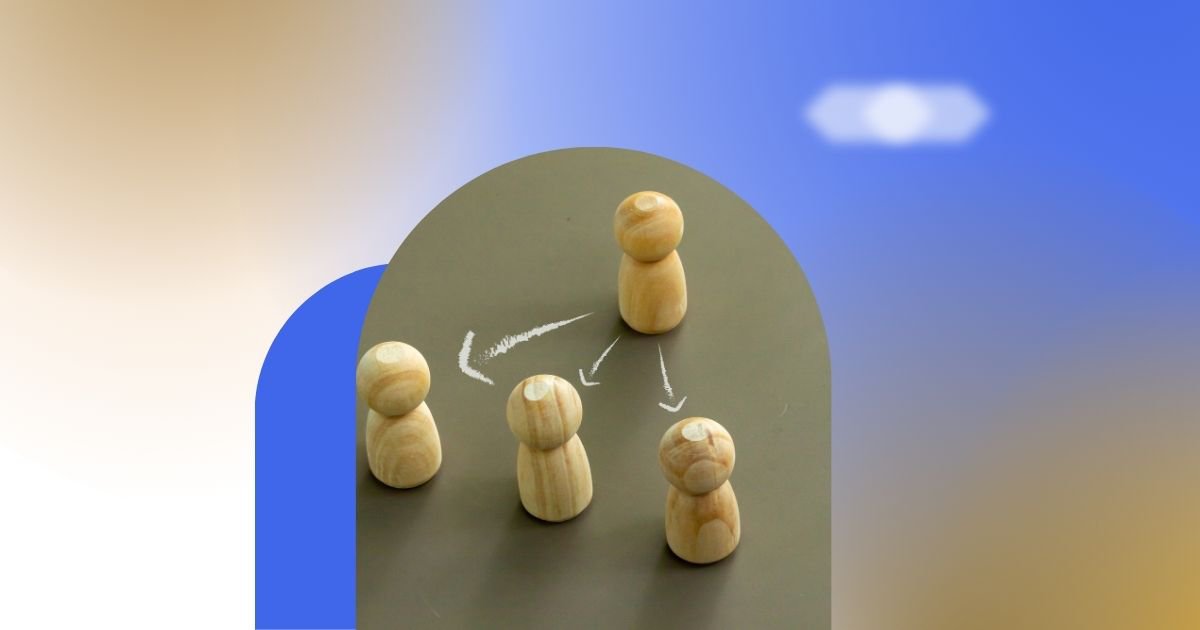Marketing has always been a daunting task. For this reason, it’s essential to streamline a sustainable marketing plan that doesn’t just hit your KPIs but also ensures that your team can always work at their best. Fortunately, Wing Assistant can help you find the perfect marketing virtual assistant for this.
The business landscape has never been more competitive. With numerous businesses popping up around the internet almost every day, it has become imperative to get a marketing virtual assistant that will help you maintain a competitive edge in your niche.
Save $900 on a Full-Time Wing Virtual Assistant
when you start with a full-time Wing Virtual Assistant.
The Ultimate Guide to Marketing Tasks to Delegate
The digital marketing industry had a market value of $350 billion in 2020, projected to grow to $786.2 billion by 2028. These figures show that businesses, regardless of their niche, should always have a strong online presence to reach and convert new customers.
Here are the primary tasks that should be included in your digital marketing plan:

Marketing Virtual Assistant Tasks related to Social Media Management
Social media management involves overseeing a company’s online presence, posting content, interacting with the audience, and tracking performance on platforms like Facebook, Instagram, and Twitter.
In today’s digital age, social media is crucial for brand visibility. In fact, 71% of consumers who have had a positive experience with a brand on social media are likely to recommend it to others. Effective management can boost engagement, lead generation, and customer loyalty.
Here’s how your marketing assistants can help you implement high-converting social media campaigns:
- Developing and updating a content calendar: Your assistant will plan and schedule your social media content to maintain a consistent and engaging online presence.
- Writing and scheduling social media posts: They create and post content across your platforms.
- Responding to comments and messages: They engage with your audience, responding to comments and direct messages promptly.
- Liking, sharing, and commenting on relevant content: Your assistant keeps your brand active by interacting with other relevant content.
- Participating in discussions related to your industry: They join industry conversations and forums to enhance your online presence.
- Gathering data on social media performance: They collect and analyze data to refine your social media strategy.
Content Creation Tasks for Marketing Virtual Assistants
Content creation entails producing valuable and engaging material, such as blog posts, articles, videos, and infographics, to inform and captivate your audience.
High-quality content is a cornerstone of online marketing. Marketers prioritizing blogging efforts are 13x more likely to see a positive ROI. It helps establish authority, drive organic traffic, and engage potential customers.
Here are the crucial tasks you could delegate to your content marketing assistant:
- Research relevant topics: Your assistant researches to identify trending and relevant topics.
- Write blog posts or articles: They create informative and engaging blog posts or articles for your website.
- Proofread and edit blog posts: They ensure your content is error-free and polished.
- Write content for email newsletters: They craft compelling content for your email marketing campaigns.
- Design images for blogs and newsletters: Your assistant creates eye-catching visuals to accompany your content.
- Segment email lists and personalize content: They categorize your email subscribers for targeted campaigns and personalize the content accordingly.
- Monitor and analyze email performance: They track the performance of your email campaigns for improvements.
Search Engine Optimization (SEO)
SEO involves optimizing your website and content to rank higher in search engine results, making it more accessible to users searching for relevant keywords.
Regardless of what some people say, experts suggest that SEO is far from dying. Over 90% of online experiences begin with a search engine. Effective SEO increases your online visibility, driving organic traffic and enhancing your brand’s authority and credibility.
Keyword Research
All great blogs start with good keyword research. This process involves looking up how many people are searching for a particular phrase, and looking at what pages rank highly in Google and other search engines. Your SEO marketing assistant can work on:
- Analyze search volume and competition: Your assistant assesses keyword popularity and competition in your industry.
- Create a list of high-potential keywords: They compile a list of keywords that can boost your online visibility.
- Monitor keyword rankings and track changes: They keep tabs on your website’s ranking for selected keywords.
- Research and identify long-tail keywords: Your assistant identifies specific, longer search phrases to target.
On-Page SEO
When you have your blog content, the next step is to ensure that people searching for related keywords would see your post. Optimizing elements on the blog post itself ensures that it could rank highly in search engine results pages. Here are some on-page SEO tasks that a marketing VA can handle for you:
- Create and update meta tags: They optimize meta tags to enhance your website’s search engine ranking.
- Ensure blog posts and pages are optimized: They review and improve the SEO of your website’s content.
- Ensure proper URL structure: Your assistant organizes your website’s URLs for user-friendliness and SEO.
Off-Page SEO
Besides optimizing page elements, content managers also handle off-page SEO. This involves building links to relevant domains, improving structured data, and taking care of other technical aspects of blogging.
- Implement schema markup: They add structured data to your site for search engines to better understand your content.
- Ensure fast page speed: Your assistant enhances your website’s loading speed for a better user experience.
- Research and identify high-quality websites: They find reputable websites for backlinks and collaborations.
- Outreach to relevant websites and blogs: They establish connections with other sites for link-building.
- Disavow toxic or spammy backlinks: Your assistant identifies and disavows harmful backlinks to protect your site’s SEO.

Paid Advertising Tasks for Marketing VAs
Paid advertising refers to creating and running ads on platforms like Google Ads, Facebook Ads, and more to reach a wider audience. This type of advertising complements organic efforts by ensuring immediate visibility. On average, businesses make $2 for every $1 on Google Ads, demonstrating its ROI potential.
Thinking of getting a marketing assistant to do paid advertising for you? Here are the primary tasks that you should delegate:
- Create and set up ad campaigns: Your assistant designs and launches advertising campaigns.
- Monitor campaign performance: They keep a close eye on the performance of your ads.
- Ensure campaigns stay within budget: Your assistant manages ad spending to maximize ROI.
- Provide regular reports on ad spend: They generate reports to help you make informed advertising decisions.

Download The New Year Delegation Guide
VAs for Email Marketing
Email marketing involves sending targeted emails to subscribers to nurture leads, retain customers, and promote products or services. Email marketing boasts an impressive ROI, with $42 generated for every $1 spent, making it a cost-effective and highly engaging channel for businesses to communicate with their audience.
Create a high-converting email marketing campaign by allowing your marketing assistants to do the following tasks:
- Schedule and send out newsletters: Your assistant manages the timing and distribution of your email newsletters.
- Segment email lists for targeted campaigns: They categorize your email subscribers for personalized email marketing.
- Monitor open rates, CTR, and conversion rates: Your assistant tracks key email marketing metrics for optimization.
- Set up automated drip email campaigns: They create and manage automated email sequences.
- Handle unsubscribes and manage email preferences: Your assistant ensures compliance with email regulations.
- Clean and maintain email lists: They keep your email lists up-to-date and free from irrelevant contacts.
- Import and export email lists as needed: Your assistant manages the technical aspects of your email list.
- Ensure compliance with email marketing regulations: They follow legal guidelines in email marketing.
- Monitor and analyze the results of A/B tests: Your assistant conducts A/B tests to refine your email campaigns for better performance.
Lead Generation and Prospecting Tasks to Delegate to a Marketing Virtual Assistant
Lead generation involves identifying and attracting potential customers, while prospecting qualifies and nurtures those leads.
91% of B2B marketers say lead generation is their most important content marketing goal. Effective lead generation and prospecting strategies are crucial for maintaining a healthy sales funnel and business growth.
Here are the key marketing tasks that should be included in your lead generation and prospecting plans:
- Research potential leads and prospects: Your assistant identifies potential customers and business partners.
- Collect and organize contact information: They create a database of contact details.
- Craft personalized outreach messages: Your assistant sends tailored messages to engage prospects.
- Schedule appointments for interested prospects: They arrange meetings with interested leads.
- Send follow-up emails and content: Your assistant continues to nurture leads with additional information.
- Enter new leads or accounts into the CRM: They maintain your customer relationship management system.
- Create PowerPoint or presentation slides: Your assistant designs slides for business presentations.
Market Research and Competitive Analysis for Marketing VAs
Market research and competitive analysis involve collecting and analyzing data about your industry, competitors, and target market to make informed decisions.
77% of businesses say data-driven decision-making has given them a competitive advantage. Informed by research, businesses can adapt their strategies, identify market gaps, and stay ahead of competitors.
Here are some market research tasks you should delegate to your marketing assistants:
- Identify and gather industry reports & databases: They collect data sources for industry insights.
- Analyze competitors’ products, pricing, and marketing: Your assistant assesses competitors’ strategies.
- Monitor competitors’ digital footprint: They monitor your competitors’ online activities.
- Identify niche markets or target audience segments: They help you discover specific markets to target for growth.
Project Management Tasks for Marketing Virtual Assistants
Project management entails planning, executing, and monitoring projects, ensuring that tasks are completed on time and within budget.
Successful project management improves efficiency. In fact, 77% of high-performing projects use project management software, streamlining processes, enhancing productivity, and reducing the risk of costly overruns.
Here are some project management tasks your marketing assistant should be aware of:
- Set up reminders for project milestones and task deadlines: Your assistant ensures your projects stay on track.
- Adjust timelines to accommodate changes: They adapt project timelines as needed.
- Collect updates from team members on task completion: Your assistant gathers progress updates from your team.
- Create regular progress reports for stakeholders: They generate reports to keep stakeholders informed.
- Act as a point of contact for team members to report progress: Your assistant facilitates communication within your team.
Best Practices when Delegating Tasks to Marketing Assistants
Effective delegation is not just about assigning tasks; it’s about strategically allocating responsibilities to the right team members. Here’s a quick guide to help you get the most out of your partnership with your marketing assistants:

1. Define clear objectives and expectations
What are your short-term and long-term goals for your marketing efforts? What specific tasks do you want to delegate to your marketing assistant? By defining clear objectives and expectations, you provide your assistant with a roadmap for success.
2. Identify the Right Tasks for Delegation
Identifying the right tasks to delegate is crucial. Not every marketing task is suitable for delegation. Start by categorizing tasks into two groups: repetitive and time-consuming and highly specialized or strategic.
3. Choose the right marketing assistant
Look for candidates with the skills and experience necessary to perform the tasks you intend to delegate. Consider their previous work and references, and, if possible, interview them to gauge their fit within your organization.
4. Communicate clearly and provide guidance
Communicate your objectives and expectations. Provide guidelines, examples, and access to any necessary tools or resources.
5. Set realistic deadlines and prioritize tasks
Keep in mind that your marketing assistant may be handling multiple responsibilities. Prioritize tasks based on their importance and urgency. Be transparent about your expectations regarding delivery times and quality standards.
6. Empower and trust your marketing assistant
Allow your marketing assistant the autonomy to make decisions within their purview. Trust them to execute tasks effectively. Micro-management can stifle productivity and hinder your assistant’s ability to excel.
7. Monitor progress and provide feedback
Provide constructive feedback to help your marketing assistant improve and meet your expectations. Acknowledge their successes and offer guidance when needed. Open and honest feedback fosters a collaborative and productive working relationship.
8. Evaluate and adjust
Periodically assess the impact of your delegated tasks on your business. Are you experiencing the expected benefits in terms of productivity and efficiency? Is there room for improvement or adjustments in your delegation strategy? Flexibility is key in adapting your approach for better results.
Read if you want to hire a medical scribe next.
Save $900 on a Full-Time Wing Virtual Assistant
when you start with a full-time Wing Virtual Assistant.
Get Top-Notch Remote Digital Marketing Assistants from Wing
Outsourcing marketing tasks to a virtual digital marketing assistant is a game-changer. It allows you to free up your time and expertise to focus on what truly matters for your business’s growth.
At Wing Assistant, we’re dedicated to connecting you with top-notch remote digital marketing assistants who can take your marketing efforts to the next level. Whether you need help with social media management, content creation, SEO, paid advertising, email marketing, lead generation, market research, or project management, we have your expertise.
Don’t let marketing tasks overwhelm you. Streamline your operations, boost productivity, and achieve remarkable results by hiring a marketing virtual assistant from Wing. Start your journey toward success today. Click here to learn more about our services and find your perfect virtual assistant.

Download The New Year Delegation Guide
Aya is Wing Assistant’s blog manager. When she’s not wrangling content briefs, editing article drafts and handling on-page SEO, she is crafting messages for Wing’s other communication materials. Aya writes about SaaS startups, marketing for startups, search engine optimization, and pop culture.











